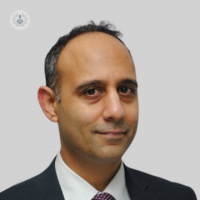Unlocking liver health
Written by:The liver is a vital organ, often overlooked until something goes wrong. Liver disease covers a range of conditions that affect this essential organ, impacting millions globally. In his latest online article, Dr Amit Gera delves into the complexities of liver disease, discussing its causes, prevention, and treatment.

Understanding the liver:
Nestled beneath the rib cage, the liver serves as the body's metabolic powerhouse, orchestrating a range of essential functions. It regulates blood sugar levels, synthesises proteins, processes nutrients, detoxifies harmful substances, and produces bile for fat digestion. Its resilience and regenerative capacity are remarkable, enabling it to withstand insults and regenerate damaged tissue.
The spectrum of liver disease:
Liver disease spans a broad spectrum, ranging from benign conditions like fatty liver disease to life-threatening ailments such as liver cancer. Non-alcoholic fatty liver disease (NAFLD), characterised by excessive fat accumulation in the liver, has emerged as a silent epidemic, closely linked to obesity and metabolic syndrome. Left unchecked, NAFLD can progress to non-alcoholic steatohepatitis (NASH), marked by inflammation and liver cell damage, paving the way for cirrhosis and liver failure.
Alcohol-related liver disease (ALD) remains a prevalent concern, fueled by excessive alcohol consumption. Chronic alcohol abuse inflicts significant harm on the liver, leading to inflammation, fatty liver, alcoholic hepatitis, and ultimately cirrhosis. Hepatitis viruses, including hepatitis B and C, pose a significant global burden, causing acute and chronic liver inflammation and predisposing individuals to liver cirrhosis and cancer.
Innovative approaches to diagnosis and management:
Early detection and intervention are pivotal in mitigating the progression of liver disease. Advances in medical imaging, including ultrasound, MRI, and elastography, enable non-invasive assessment of liver health, facilitating timely diagnosis and monitoring. Blood tests measuring liver enzymes, markers of inflammation, and fibrosis provide valuable insights into disease severity and progression. Lifestyle modifications, including dietary changes, weight management, and alcohol cessation, form the foundation of treatment for many liver conditions. Pharmacological interventions targeting specific pathways involved in liver disease, such as antiviral medications for hepatitis B and C or insulin sensitisers for NASH, hold promise in halting disease progression and improving outcomes.
The role of liver transplantation:
For individuals with advanced liver disease or liver failure, transplantation remains the ultimate recourse. Liver transplantation offers a lifeline to those facing dire prognoses, providing a chance for renewed health and vitality. Advances in surgical techniques, immunosuppressive therapies, and organ preservation have significantly improved transplant outcomes, enhancing both survival rates and quality of life for recipients.
Emerging trends and future directions:
As our understanding of liver disease continues to evolve, so too do our approaches to prevention, diagnosis, and treatment. Cutting-edge research endeavours, spanning genomics, immunology, and regenerative medicine, hold promise in unravelling the molecular underpinnings of liver disease. Precision medicine approaches, tailored to individual genetic profiles and disease characteristics, offer the tantalising prospect of personalised therapies optimised for efficacy and safety.
Dr Amit Gera is an esteemed gastroenterologist. You can schedule an appointment with Dr Gera on his Top Doctors profile.


